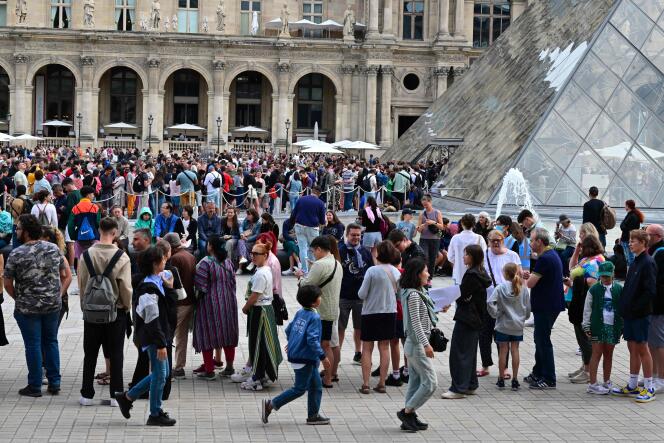


When Véronique Antoine-Andersen puts pen to paper, it's usually to write educational books. But when, in December 2023, the Louvre announced a dramatic increase in its admission ticket prices, now €22 compared to the previous €15 online and €17 on site, the art historian was incensed.
The former mediator, who has worked at institutions such as the Musée en Herbe and the Cité de l'Architecture et du Patrimoine in Paris, immediately launched a petition on Change.org entitled "Le Louvre flambe! Contre l'augmentation de 30% de son prix d'entrée" ("The Louvre is blazing! Against the 30% entrance fee increase"). "As a citizen, I'm stunned by this decision," she said, recalling that free admission was one of the founding principles of the world's largest museum.
Jean-Michel Tobelem was equally taken aback. "Article 7 of the law on museums in France is quite clear: Admission fees must be set in such a way as to promote access to the widest possible public," said the associate professor at the Université Paris-I Panthéon-Sorbonne, condemning the "elitization of museums." A study carried out in 2019 by the Centre de Recherche pour l'Etude et l'Observation des Conditions de Vie (CREDOC, or Center for the Study and Observation of Living Conditions) on behalf of the culture ministry proved him right: 44% of French citizens stated that they had foregone a museum or landmark visit because of the price. For 82% of them, the "psychological" price should not exceed €10.
The Louvre is not the only French museum to implement a price increase. Visitors will now have to pay €21 to visit the Château de Versailles, €1.50 more than in 2023. At the Centre des Monuments Nationaux, which covers a hundred or so establishments, prices will rise by an average of €1 this year. "We have no choice," said its president, Marie Lavandier. "The health crisis has left its mark, despite the government's commitment and record attendance has not been enough to get back on track due to inflation. We need to find some financial breathing space."
For years, France's major museums have faced the challenge of reconciling cultural access with financial autonomy. It's a real conundrum, especially since government subsidies have reached a ceiling, patronage support is dwindling and restoration costs are soaring in aging institutions. The unpopular increase in entrance fees, endorsed and even encouraged by the culture ministry, therefore seems inevitable. This is all the more true as it mainly penalizes foreign tourists, the main contingent for the Paris region's giant institutions, who are ready to make any sacrifice to step back in time with Marie-Antoinette, take a selfie with the Mona Lisa or view the whole of Paris from the Arc de Triomphe, where the ticket price will rise from €13 to €16 in 2024.
You have 70% of this article left to read. The rest is for subscribers only.
